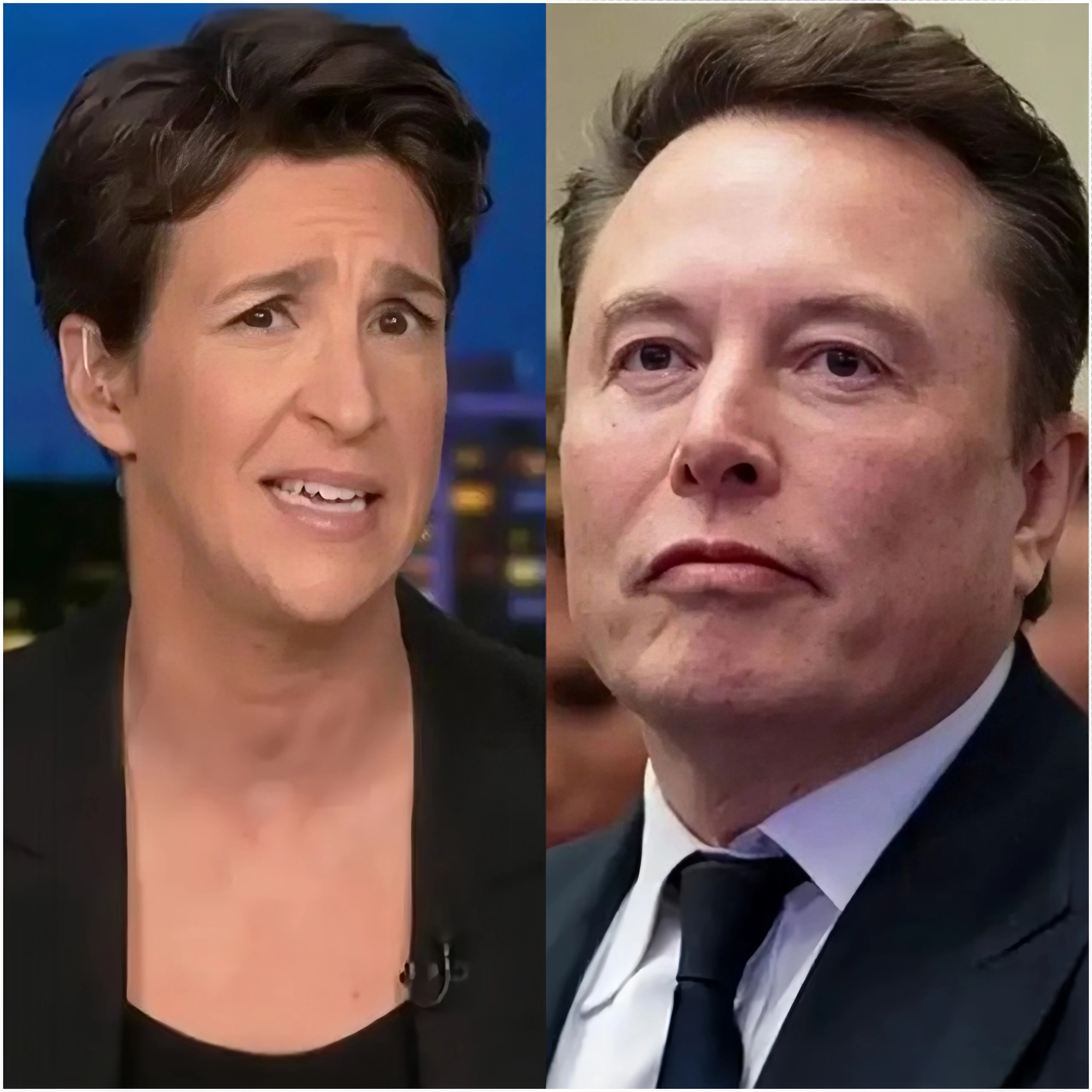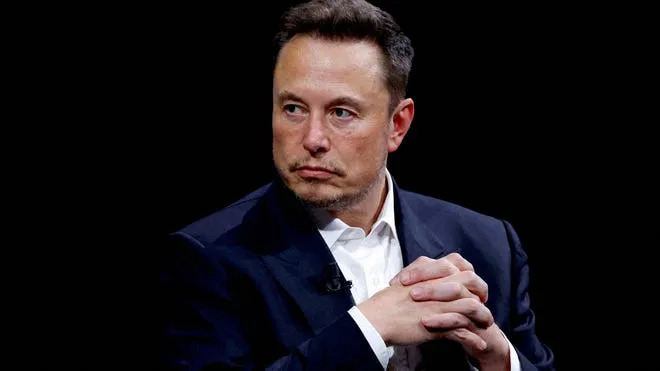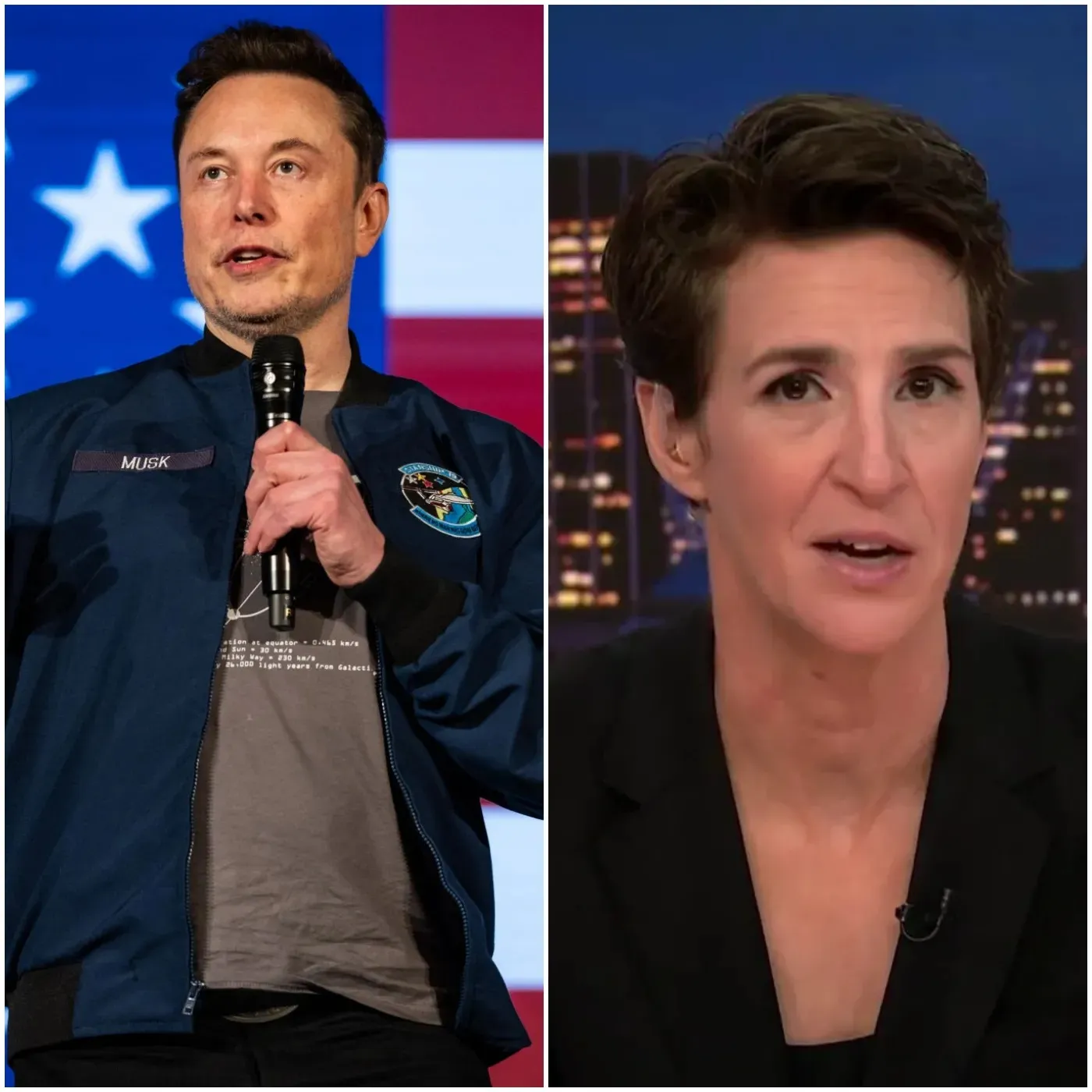Elon Musk, the billionaire entrepreneur behind Tesla, SpaceX, and a growing list of ventures, has reportedly set his sights on an ambitious new acquisition: MSNBC. According to insiders, Musk is prepared to spend $5 billion to acquire the prominent news network, a move that has sent shockwaves through the media and tech industries alike. Musk’s vision for MSNBC includes significant changes, including the controversial decision to part ways with longtime host Rachel Maddow.

This unexpected development has sparked widespread debate about the future of journalism, the role of tech moguls in shaping media, and Musk’s plans to “revolutionize” the news industry.
Known for his disruptive approach to industries ranging from automotive to space exploration, Musk’s entry into the media landscape comes as little surprise to those familiar with his ambitious personality. In a statement shared on social media, Musk outlined his vision for MSNBC, emphasizing a commitment to “unbiased and transparent journalism.”
“The current media landscape is broken,” Musk tweeted. “It’s time to rebuild trust and focus on delivering facts without bias. MSNBC will lead the way.”
Musk’s critique of traditional media has been a recurring theme in his public commentary, often accusing major outlets of sensationalism and partisanship. By acquiring MSNBC, he aims to create a platform that aligns with his ideals of fairness and innovation.
One of Musk’s most contentious moves involves Rachel Maddow, a pillar of MSNBC’s programming and one of its most recognizable faces. Known for her incisive commentary and progressive perspectives, Maddow has been a staple of the network for over a decade. However, Musk has made it clear that her style of journalism does not align with his vision for the reimagined MSNBC.

“Rachel Maddow’s approach is exactly what we’re moving away from,” Musk reportedly told a close associate. “The goal is to inform, not to polarize.”
While Musk’s decision has drawn praise from some quarters, others view it as an attack on independent journalism and a move that could alienate MSNBC’s core audience. Social media has been ablaze with reactions, with some users celebrating the potential shakeup and others rallying around Maddow using the hashtag #StandWithMaddow.
Maddow has yet to comment publicly on the news, but sources close to the host suggest she’s weighing her options, including a potential move to another network or launching her own independent platform.
Musk’s foray into the media industry is part of a broader trend of tech moguls investing in or acquiring traditional outlets. However, his plans for MSNBC stand out due to their sweeping ambition. In addition to overhauling the network’s editorial approach, Musk reportedly intends to leverage cutting-edge technology to enhance news delivery.
“Imagine real-time fact-checking powered by AI, interactive news experiences, and a platform where the audience can directly engage with journalists,” Musk hinted in a recent interview. “That’s the future of news.”
Musk’s track record suggests he’s not afraid to take risks or challenge norms. From pioneering electric vehicles to launching reusable rockets, he has consistently demonstrated an ability to turn ambitious visions into reality. Whether this approach will succeed in the world of journalism remains to be seen.
Musk’s acquisition of MSNBC raises important questions about the role of billionaires in shaping public discourse. While some see his involvement as a potential force for good, others worry about the concentration of media power in the hands of a few wealthy individuals.

“Media ownership by billionaires is not new, but it’s always concerning,” said media analyst Dr. Karen Fields. “When individuals with immense wealth control major news outlets, it’s critical to scrutinize their intentions and the potential impact on journalistic integrity.”
Critics argue that Musk’s outspoken nature and history of clashing with journalists could pose challenges to the network’s credibility. Supporters, however, view his vision as a much-needed disruption to an industry struggling with declining trust and viewership.
As negotiations progress, all eyes are on Musk and the potential transformation of MSNBC. Industry insiders suggest that the acquisition could be finalized within the next few months, paving the way for sweeping changes to the network’s programming and operations.
For Rachel Maddow, the future remains uncertain. Fans have rallied behind her, urging other networks to offer her a platform where she can continue her distinctive style of journalism. Meanwhile, Musk’s vision for MSNBC—centered on neutrality, innovation, and transparency—will undoubtedly shape the next chapter in the network’s history.
Whether Musk’s bold plans succeed or face resistance, his move to acquire MSNBC represents a pivotal moment in the evolution of media. As traditional outlets grapple with changing viewer habits and growing skepticism, the potential for innovation—or disruption—is immense.
For better or worse, Elon Musk’s influence on journalism is set to be as transformative as his ventures in technology and space exploration. And as the world watches this story unfold, one thing is clear: the future of news may never look the same.